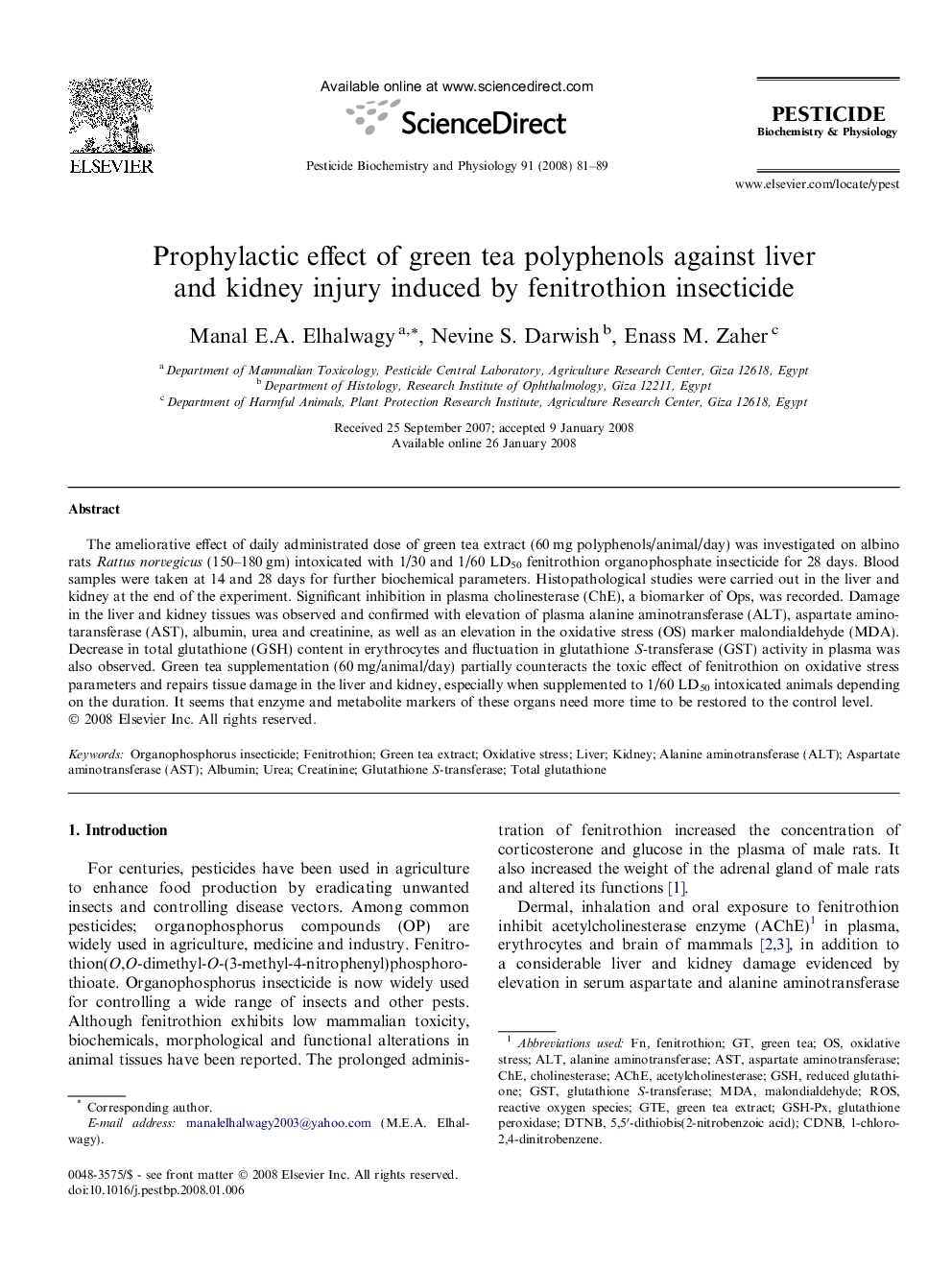| Article ID | Journal | Published Year | Pages | File Type |
|---|---|---|---|---|
| 2009660 | Pesticide Biochemistry and Physiology | 2008 | 9 Pages |
The ameliorative effect of daily administrated dose of green tea extract (60 mg polyphenols/animal/day) was investigated on albino rats Rattus norvegicus (150–180 gm) intoxicated with 1/30 and 1/60 LD50 fenitrothion organophosphate insecticide for 28 days. Blood samples were taken at 14 and 28 days for further biochemical parameters. Histopathological studies were carried out in the liver and kidney at the end of the experiment. Significant inhibition in plasma cholinesterase (ChE), a biomarker of Ops, was recorded. Damage in the liver and kidney tissues was observed and confirmed with elevation of plasma alanine aminotransferase (ALT), aspartate aminotaransferase (AST), albumin, urea and creatinine, as well as an elevation in the oxidative stress (OS) marker malondialdehyde (MDA). Decrease in total glutathione (GSH) content in erythrocytes and fluctuation in glutathione S-transferase (GST) activity in plasma was also observed. Green tea supplementation (60 mg/animal/day) partially counteracts the toxic effect of fenitrothion on oxidative stress parameters and repairs tissue damage in the liver and kidney, especially when supplemented to 1/60 LD50 intoxicated animals depending on the duration. It seems that enzyme and metabolite markers of these organs need more time to be restored to the control level.
